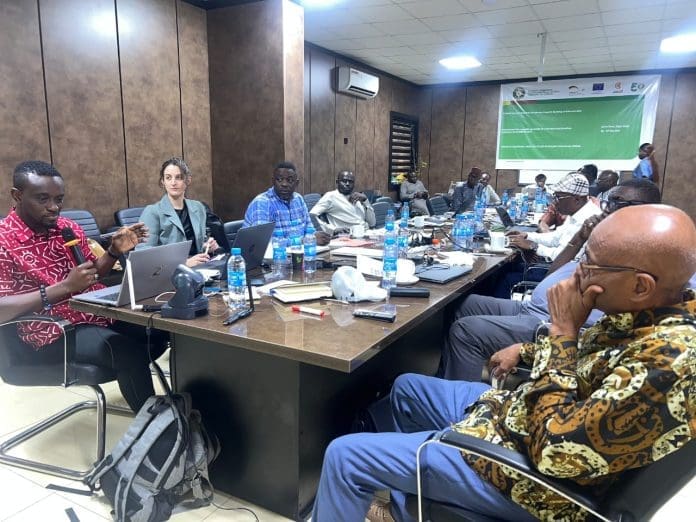The Economic Community of West African States (ECOWAS) intensified efforts to strengthen internal coordination mechanisms this week, signaling a strategic pivot toward deeper integration among remaining member states following the historic departure of three nations earlier this year.
The regional bloc hosted a two-day capacity building retreat in Niger State, Nigeria, on September 18-19, bringing together representatives from multiple ECOWAS directorates to enhance coordination under the ISE II project, funded through Spanish cooperation. The timing proves significant as ECOWAS grapples with the fallout from the formal withdrawal of Mali, Burkina Faso, and Niger on January 29, 2025, marking the most significant crisis in West Africa’s regional integration since the founding of ECOWAS in 1975.
Jerome Boa, Director of External Relations, emphasized that inter-departmental collaboration has become critical for successful implementation of development partners’ projects. Speaking on behalf of ECOWAS Commission President Omar Alieu Touray, Boa stressed the importance of strong coordination mechanisms for effective regional integration implementation.
The retreat focused on the ISE II project, part of broader Spanish cooperation initiatives that have gained prominence as ECOWAS seeks to diversify its partnerships. Santiago Ormeño García, Head of the Spanish Agency for International Development Cooperation (AECID) in Nigeria and ECOWAS, reinforced Spain’s commitment to regional integration efforts.
“Regional integration delivers livelihoods and improves citizens’ lives,” García stated, positioning the Spanish partnership as crucial for bringing the West African community together despite recent fragmentation.
The emphasis on internal coordination comes as ECOWAS faces its most challenging period since inception. The departure of Mali, Burkina Faso, and Niger has reduced the bloc from 15 to 12 member states, eliminating approximately 73 million people from the regional market and removing significant geographical territory from the integration project.
Current ECOWAS membership now comprises Benin, Cabo Verde, Côte d’Ivoire, The Gambia, Ghana, Guinea, Guinea-Bissau, Liberia, Nigeria, Sierra Leone, Senegal, and Togo. These nations represent a combined gross domestic product of approximately $734.8 billion, though this figure has been reduced by the departure of the three Sahel states.
The ISE II project represents part of ECOWAS’s strategy to maintain momentum in regional integration through enhanced partnerships with European allies. Spanish cooperation has become increasingly valuable as the organization works to implement critical programs aimed at deepening cohesion among remaining members.
ECOWAS officials view internal coordination as essential for managing the transition period and ensuring that development projects continue despite the reduced membership. The organization has maintained its vision of transforming from an “ECOWAS of States” to an “ECOWAS of the People” by 2050, targeting improved peace and prosperity for an estimated 300 million citizens.
The retreat’s focus on coordination mechanisms suggests ECOWAS recognizes that successful integration among the remaining 12 states requires more sophisticated internal collaboration than the previous 15-member structure. Development partners like Spain have signaled continued support for this refined approach.
Spanish cooperation extends beyond the ISE II project, encompassing various initiatives through ECOWAS’s Project Preparation and Development Unit and the Regional Centre for Renewable Energy and Energy Efficiency. This diversified partnership provides ECOWAS with alternative funding streams as it adapts to its new composition.
The organization continues to finance operations through its community levy system, which applies a 0.5 percent tax on the cost, insurance, and freight value of goods imported from non-ECOWAS countries. However, the reduced membership has impacted revenue collection capabilities.
As ECOWAS navigates this transformative period, the emphasis on strengthening coordination mechanisms through partnerships like the ISE II project indicates a strategic commitment to deeper integration among remaining members rather than abandoning regional unity objectives.
The success of these coordination efforts could determine whether ECOWAS emerges stronger from its current crisis or continues to face further fragmentation challenges in West Africa’s complex political landscape.
Source: newsghana.com.gh











